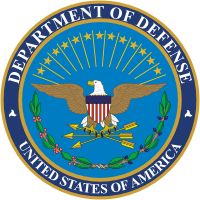Editorial
Even before the passage of the first amendment, the American media has served as a vessel for freedom of the press. From the Zenger Trial of the colonial era to the modern whistleblowers reported by today’s media outlets, the United States has always had a press that has remained autonomous from government control throughout the centuries.
Recently, this freedom has been put in jeopardy. After discovering that they had revealed sensitive information in front of a New York Times reporter during an open session, the United States government explicitly tried to restrict journalistic freedom. After expelling the reporter by entering a closed session, the Secretary of Defense messaged the New York Times. The Secretary claimed that, “all the information discussed in that conference was confidential and you can not use it.” Undoubtedly, this is a bold claim for the United States government to make.
This statement, the Defense Secretary proves an age-old saying: history repeats itself. In 1971, after the New York Times released the damning Pentagon Papers, the Nixon administration tried to censor the newspaper and stop the publication of the classified materials. A legal battle ensued and the case was taken to the Supreme Court. In a 6-3 decision, the Burger court upheld freedom of the press, thus creating a milestone in the history of journalistic freedom.
The sentiments of the American cabinet members do not reflect the constitution or the results of New York Times v. United States. The New York Times endorsed President Biden, and maintains its support for his administration. However, the hypocrisy of the Secretary of Defense’s comment does not bode well for journalists. The comment, frankly, is un-American. The New York Times strongly encourages the Biden Administration to reaffirm its commitment to journalistic freedom, so that the legacy of the Zenger Trial and the Pentagon Paper exposé isn’t lost to history’s vicious cycle.

